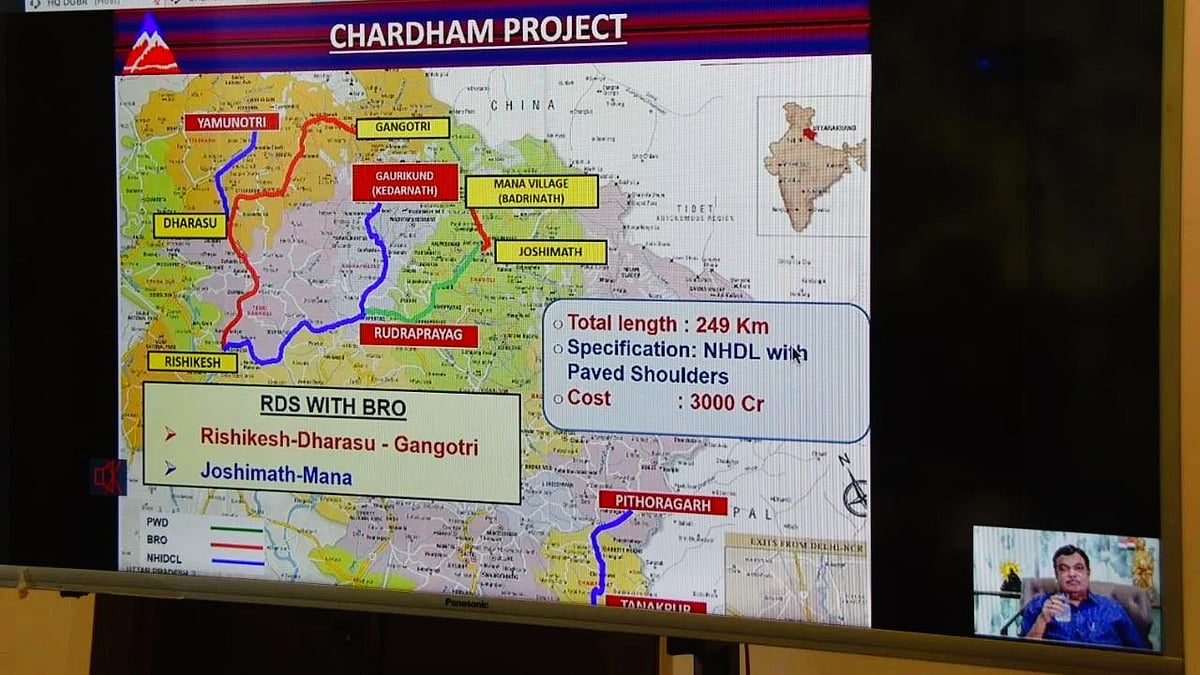Nation
Murli Manohar Joshi, Karan Singh among those seeking recall of Char Dham SC verdict
Veteran BJP leader Joshi, former Union minister Singh joined by 57 others including Shekhar Pathak and Ramachandra Guha

A petition endorsed by 57 prominent figures, including historian Shekhar Pathak and author Ramachandra Guha, has called for a review of the Supreme Court’s 2021 verdict allowing the widening of roads under the Char Dham project in Uttarakhand.
The petitioners argue that expanding the highways to 12 metres in ecologically sensitive zones has heightened the region’s vulnerability to landslides and other disasters.
The plea, addressed to Chief Justice of India B.R. Gavai, contends that the accelerated pace of construction in fragile Himalayan terrain is producing unintended consequences. “Road widening in this sensitive zone has made it more disaster-prone,” it states, underlining how repeated incidents of landslides and sinking zones have already disrupted local life and defence logistics.
Veteran BJP leader Murli Manohar Joshi and former Union minister Karan Singh, who are spearheading the appeal, argue that the government’s 2020 circular permitting wider roads should be reconsidered, favouring an intermediate width of 5.5 m instead of the double-laned paved-shoulder roads now being implemented.
They warn that pushing ahead with the 12-m standard without adequate environmental safeguards is “counterproductive and hazardous to the Himalayan terrain”.
Published: undefined
While the Supreme Court had initially supported narrower roads in a 2020 verdict, the 2021 judgment overturned this, citing strategic and defence considerations for the Rishikesh-Gangotri, Rishikesh-Mana, and Tanakpur-Pithoragarh routes. The larger Char Dham project involves widening over 825 km of Himalayan highways, with work on 629 km reportedly completed.
Critics point out that the current expansion directly contravenes earlier ministry of road transport and highways guidelines for mountain roads and has already had visible ecological impacts.
Planned bypasses and stretches of widened roads threaten thousands of trees and tens of hectares of forest, raising concerns about avalanche risks and soil instability. The Bhagirathi eco-sensitive zone, a critical source of the Ganga, is particularly at risk.
The timing of the petition appears linked to recent disasters events in Uttarakhand, with the state government seeking over Rs 5,700 crore in relief after the monsoon season caused extensive damage. Experts say the losses this year already approach Rs 5,000 crore, the highest since the devastating Kedarnath floods of 2013.
The petition highlights the tension between rapid infrastructure development and ecological preservation. While strategic connectivity in border areas is important, the appeal emphasises that ignoring environmental limits and local knowledge now could have irreversible consequences for both residents and tourists in the region.
By urging the Supreme Court to reconsider its 2021 judgment, the petitioners hope to recalibrate the project, balancing strategic imperatives with the pressing need for disaster-resilient, sustainable infrastructure in the fragile Himalayan ecosystem.
Published: undefined
Follow us on: Facebook, Twitter, Google News, Instagram
Join our official telegram channel (@nationalherald) and stay updated with the latest headlines
Published: undefined